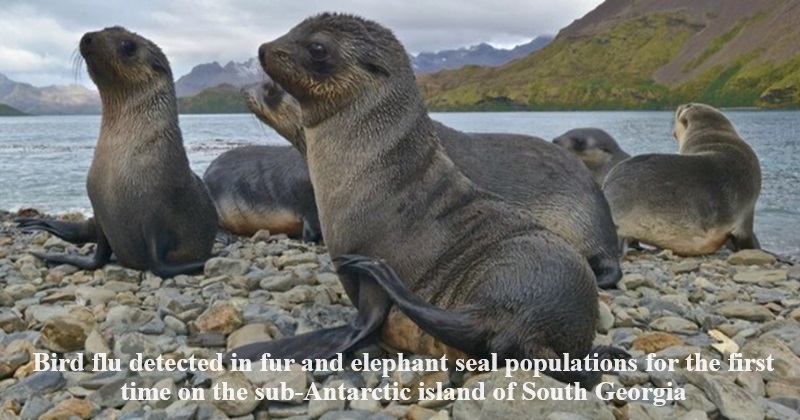
Bird flu has been identified in fur and elephant seal populations for the first time in the sub-Antarctic region of South Georgia, as confirmed by a team of scientists from the United Kingdom (UK) on Thursday. Initial suspicions arose in October of the previous year when several brown skua seabirds on Bird Island, part of the British Overseas Territory of South Georgia and the South Sandwich Islands, succumbed to avian influenza.
In December, a significant number of elephant seals were discovered dead, prompting scientists from Britain’s Animal and Plant Health Agency (APHA) and the British Antarctic Survey (BAS) to conduct a three-week expedition to the affected islands last month. During this time, samples were collected from deceased mammals and birds.
The analysis of these samples revealed the presence of HPAI H5N1 in various species, including elephant seals, fur seals, brown skuas, kelp gulls, and Antarctic terns. Ian Brown, the scientific services director at APHA, expressed concern, stating, “Given Antarctica is such a unique and special biodiversity hotspot, it is sad and concerning to see the disease spread to mammals in the region.”
According to reports from Reuters, scientists warn that the current impact of H5N1 on Antarctic wildlife could be devastating. OFFLU, a joint OIE-FAO global network of expertise on animal influenzas, highlighted the virus’s potential to infect 48 bird species and 26 marine mammal species. Antarctica’s dense colonies of thousands of seals and hundreds of thousands of birds create an environment conducive to the virus’s easy transmission between individuals.
Alastair Ward, an ecologist at the University of Leeds, noted that seals, known scavengers, may contract the virus by consuming infected bird carcasses. The concern over the virus’s spread to imperiled wildlife populations intensified when Alaskan officials recently confirmed the first known case of a polar bear succumbing to H5N1, amplifying global apprehensions about the virus’s impact on diverse ecosystems.

Post Your Comments